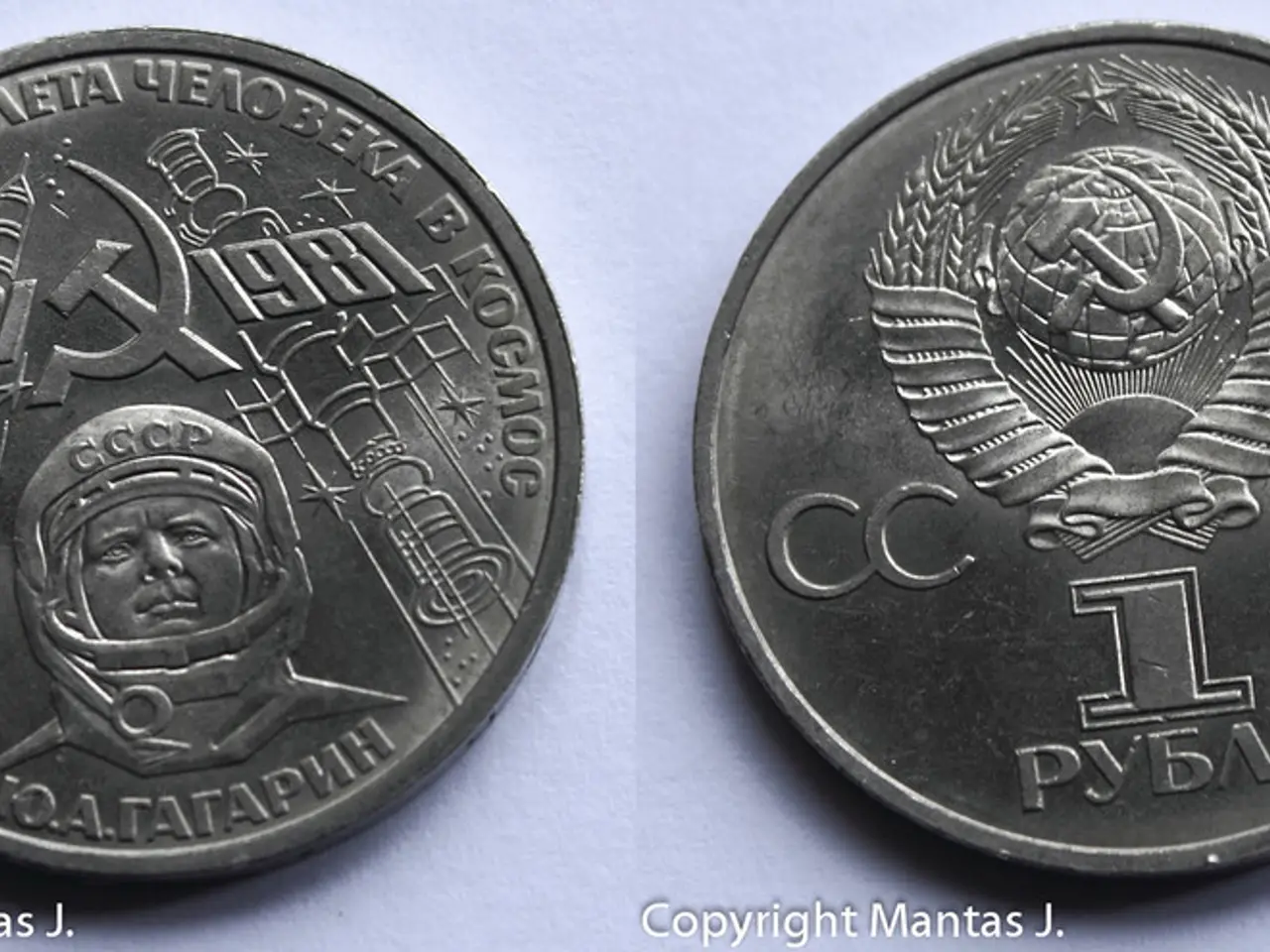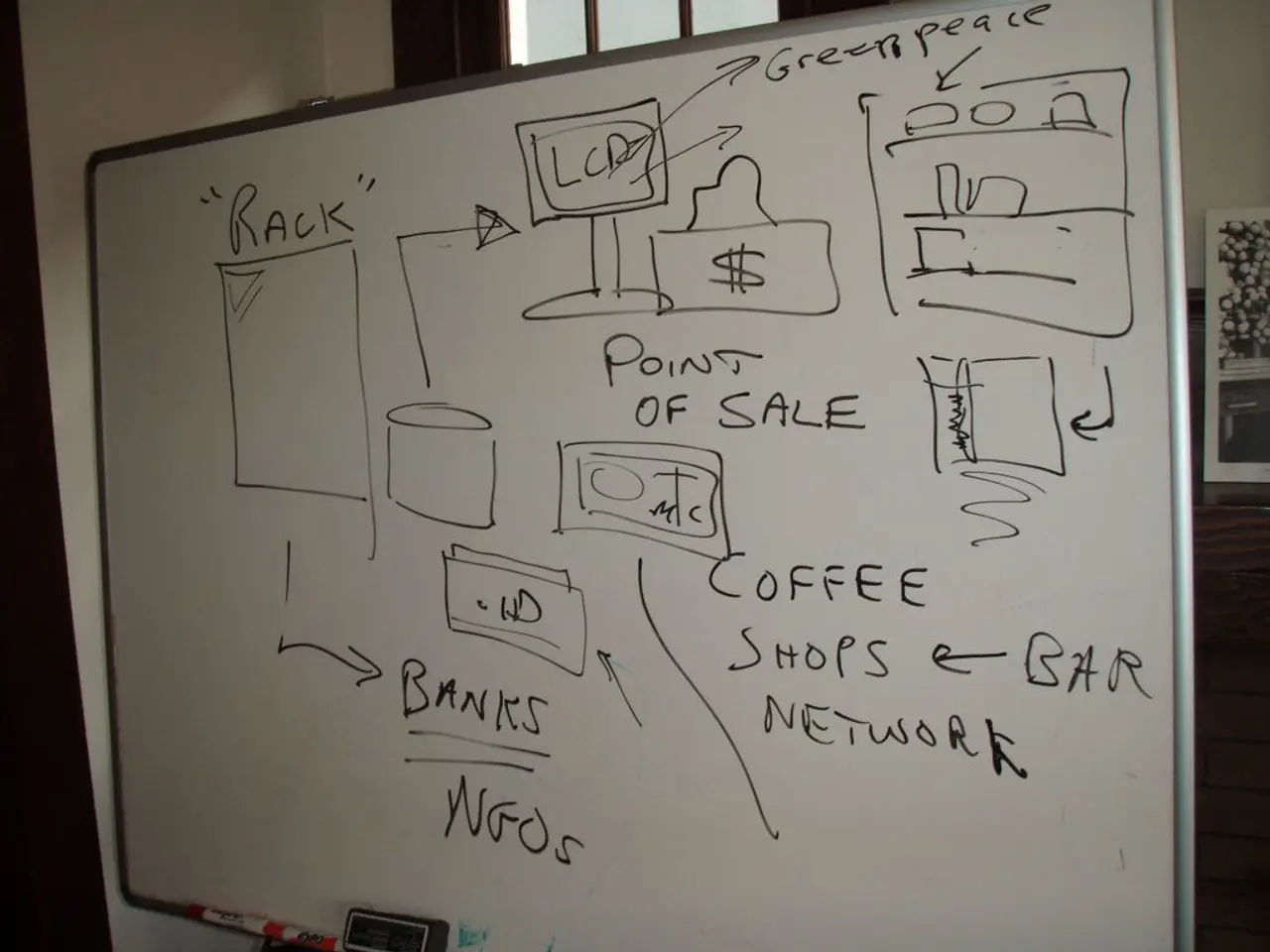Financial sector now finds it hard to ignore the growing influence of stablecoins, as a staggering $36.1 trillion has been invested in this digital currency segment.
In the rapidly evolving world of digital assets, two of America's leading banks, JPMorgan and Citigroup, are making significant strides in the stablecoin sector. As lawmakers in Washington continue to debate stablecoin legislation, these financial giants are positioning stablecoins at the heart of their future payment and treasury strategies.
JPMorgan, under the leadership of CEO Jamie Dimon, has announced plans to develop a JPMorgan deposit coin and stablecoins, acknowledging the need to understand and compete with fintech firms. However, Dimon has expressed some skepticism about the necessity of stablecoins over traditional payment methods. Meanwhile, Citigroup, led by CEO Jane Fraser, is actively exploring the issuance of a Citi stablecoin, with a strong focus on tokenized deposits as a core area of activity.
The Senate has passed the GENIUS Act, a bill aimed at regulating stablecoins and defining their asset backing. The House of Representatives is now preparing to vote on the bill, which could accelerate stablecoin regulations and create a potentially more favourable regulatory environment for digital assets. This legislative momentum is driving engagement from large banks like JPMorgan and Citigroup, who are preparing for stablecoin adoption while navigating ongoing regulatory complexities.
The interest in stablecoins remains strong, suggesting that regulatory headwinds have not significantly affected real-world usage or institutional enthusiasm for these digital assets. Despite legislative uncertainty, the stablecoin market remains resilient and optimistic. Visa's on-chain analytics show that stablecoins facilitated a transaction volume of $36.1 trillion over the past 12 months, underscoring the market's robustness.
The vote on the GENIUS Act, which saw 13 Republicans joining Democrats, stalled momentum for moving the legislation to the House floor. However, House Speaker Mike Johnson has indicated that another vote on stalled crypto bills could occur soon. This indicates that the debate surrounding stablecoin regulation is far from over.
In the midst of this legislative struggle, President Donald Trump has urged GOP lawmakers to support the GENIUS Act. Some GOP members have also called for "Crypto Week" during the legislative efforts around digital assets in Washington. Despite these calls, the timeline for a potential rule vote remains uncertain, according to journalist Jake Sherman.
As banks like JPMorgan and Citigroup delve deeper into the stablecoin market, they are not alone. JPMorgan has unveiled plans for a deposit token known as JPMD, designed to function similarly to a stablecoin but limited to use by its institutional clients. This move underscores the growing importance of stablecoins in the payments space, as banks adapt to compete with fintech firms.
In conclusion, as Washington works on formalizing crypto regulations through the GENIUS Act and related bills, top banks are positioning stablecoins as a crucial part of their future strategies. Despite regulatory complexities and legislative uncertainties, the stablecoin market remains robust and optimistic, with leading banks like JPMorgan and Citigroup preparing for adoption while navigating the regulatory landscape.
Crypto regulations, as defined by the GENIUS Act, are advancing towards a potential vote in the House of Representatives, which could create a more favorable regulatory environment for digital assets like stablecoins. Despite skepticism expressed by JPMorgan's CEO Jamie Dimon, the bank is developing a JPMorgan deposit coin and stablecoins to compete with fintech firms. Meanwhile, Citigroup, under CEO Jane Fraser, is focused on tokenized deposits as a core activity in its exploration of issuing a Citi stablecoin.




